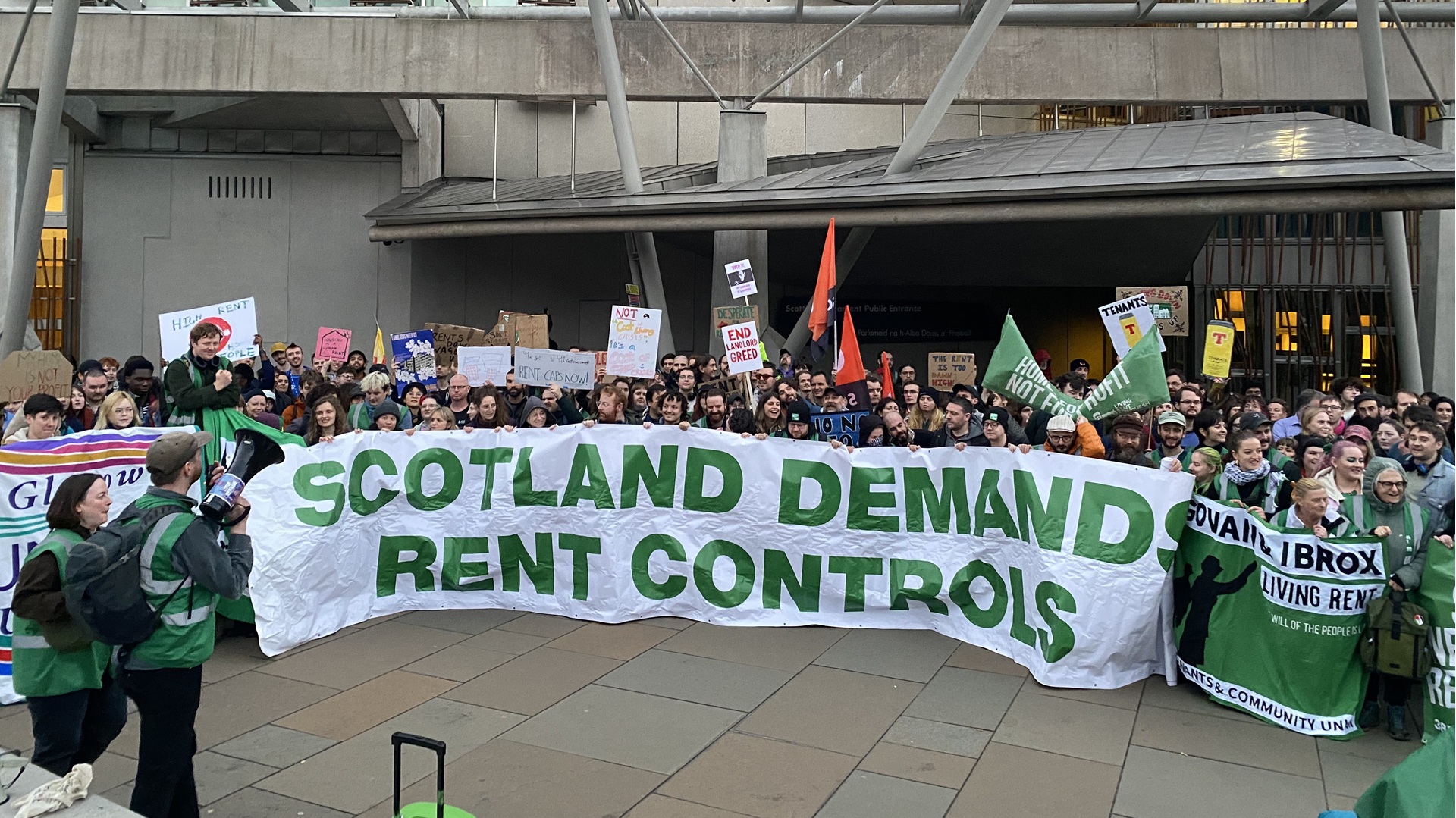“Passing this groundbreaking legislation, coupled with the Housing Emergency Action Plan published earlier this month, shows just how serious we are about tackling Scotland’s housing crisis.”
Campaigners from renters union Living Rent have long-called for rent controls to be introduced in Scotland.
The average private rent rose above £1,000 a month in September – an increase of 3.5% in the last year.
Living Rent members hailed the victory as MSPs approved the bill but have warned rent control exemptions create a two-tier system for tenants.
Citizens Advice Scotland’s (CAS) housing spokesperson Aoife Deery also said the bill’s introduction of rent controls and homelessness prevention changes will bring “much-needed improvements” to tackling affordability challenges in Scotland’s housing market.
Deery said CAS gave out housing advice more than 62,000 times last year, an increase of 7% on the previous year.
Advertising helps fund Big Issue’s mission to end poverty
The average rent debt among private renters who approach CAS is now £4,279, 14% higher than last year.
“Now the Housing Bill has passed, implementation must be driven forward to ensure that the rent controls system is robust, easy to understand and delivers good outcomes, especially for tenants,” said Deery.
The introduction of rent controls has been a contentious issue for some time. The Westminster government has repeatedly rejected introducing them, arguing that it would reduce investment in the private rented sector despite record-high rents.
But Sadiq Khan has called for powers to introduce rent controls to be introduced in London while the Welsh government has also consulted on whether to cap rents.
Critics have argued that rent controls have proven ineffective when introduced in other countries, raising rents for properties outside of the controlled units.
Rent controls were in place in Scotland until Margaret Thatcher’s Conservative government abolished them in 1988 but the SNP has reintroduced them in the last few years in response to the cost of living crisis.
Advertising helps fund Big Issue’s mission to end poverty
Chartered Institute of Housing Scotland national director Callum Chomczuk also said: “There is significant work to do in ensuring that the new rent control measures passed are workable.
“We think that there needs to be a new focus on improving standards in the private rented sector (PRS) by supporting professional development for landlords, supporting tenants to uphold their rights and resourcing more proactive enforcement from local authorities. This is why we’re working with partners to develop the scope for what we believe should inform a future Scottish government PRS strategy.”
Like the upcoming Renters’ Rights Bill in England, the Housing (Scotland) Bill will also make it easier for renters to keep pets.
Under the new legislation, tenants will have the right to request permission to keep a pet in their home – a request landlords will no longer be able to unreasonably refuse. The same measures will be introduced in England next year.
MSP Maggie Chapman also amended the government bill to reduce the time that a tenant must wait to get a response to a pet request from 42 to 30 days.
Both Dogs Trust and Cats Protection said the passing of the bill was a step forward.
Advertising helps fund Big Issue’s mission to end poverty
Read more:
Dogs Trust received more than 43,000 handover enquiries from dog owners in 2024 across the UK with one in 10 of the enquiries in Scotland due to a change in the owners’ housing situation.
Meanwhile, Cats Protection took in more than 1,000 cats due to landlords not allowing them in their properties last year.
Owen Sharp, chief executive of Dogs Trust, said the new bill will “mean the benefits of pet ownership are no longer exclusive to homeowners”. Alice Palombo, advocacy and government relations manager at Cats Protection, added the move “will help to unlock the joys of pet companionship”.
What is the Scottish government doing to solve its housing emergency?
The new bill will go alongside Scotland’s housing emergency action plan, which was published last month.
The plan includes a commitment to invest £4.9 billion over the next four years to deliver around 36,000 affordable homes and doubling investment in acquisitions to £80 million to reduce record-high numbers of families living in temporary accommodation.
Advertising helps fund Big Issue’s mission to end poverty
The government has a target of delivering 110,000 affordable homes by 2032 with 70% earmarked for social rent.
Official statistics released this week showed 6,851 affordable homes were completed through the Scottish government’s affordable housing programme in the year up to June 2025. That was down 27% or 2,530 homes on the previous year – the lowest number of homes delivered since 2015. The number of homes started or approved also slumped.
So far, 29,680 affordable homes have been built towards the 110,000 target.
Independent analysis, published by Shelter Scotland, found 15,693 affordable homes need to be built in Scotland annually to tackle the country’s housing emergency.
Shelter Scotland director Alison Watson said: “Once again, we are seeing the consequences of decades of underfunding and poor political choices in housing.”
Do you have a story to tell or opinions to share about this? Get in touch and tell us more.
Advertising helps fund Big Issue’s mission to end poverty
Reader-funded since 1991 – Big Issue brings you trustworthy journalism that drives real change.
Every day, our journalists dig deeper, speaking up for those society overlooks.
Could you help us keep doing this vital work? Support our journalism from £5 a month.






